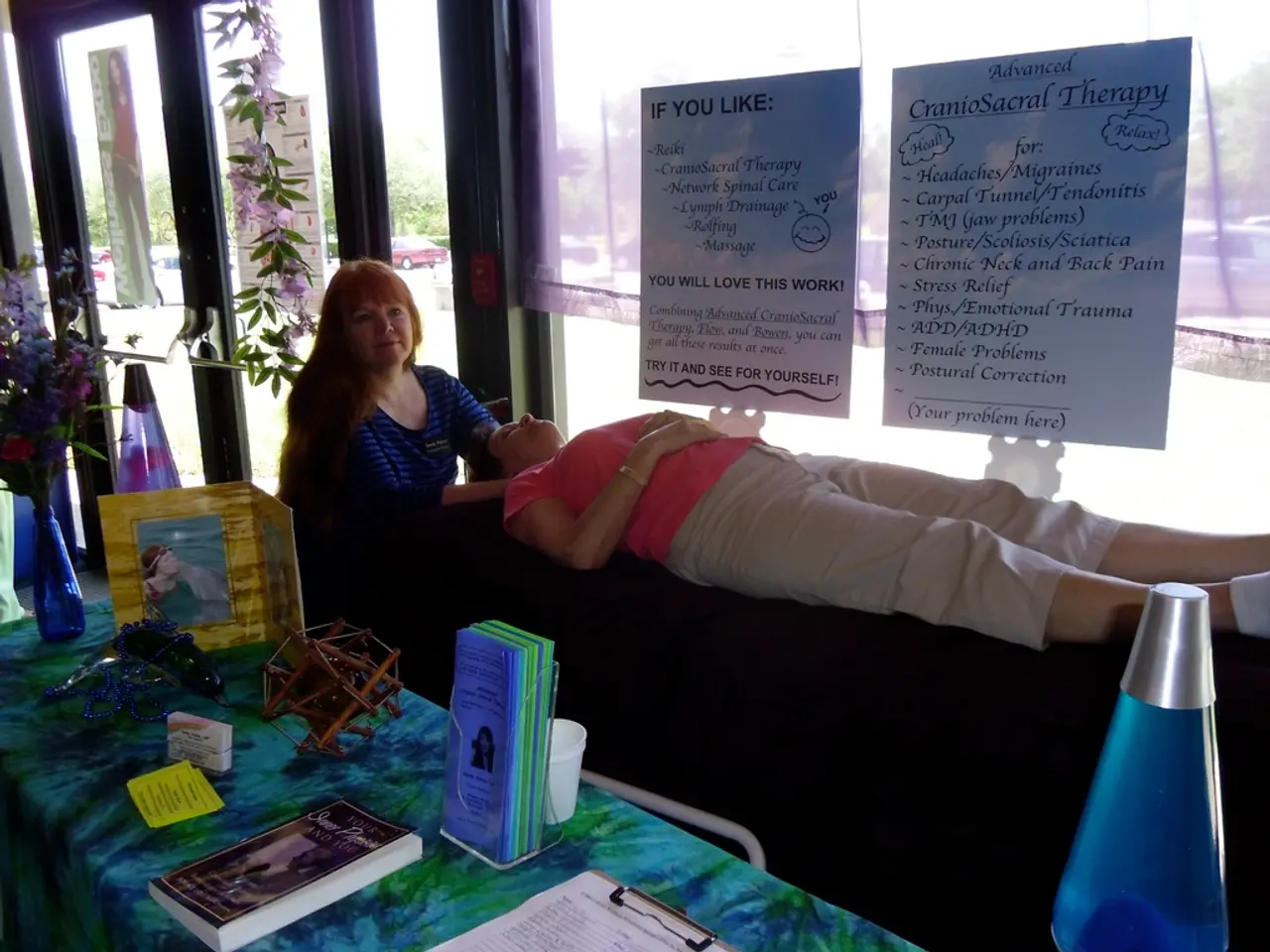Impact of Leprosy-Related Physical Deformities on Psychology and Society
In the fight against leprosy, a chronic disease that affects both physical and mental well-being, a comprehensive approach is essential. Here's a look at some effective strategies and recommendations for reducing mental health issues and improving the quality of life for leprosy patients and their families.
## Effective Coping Strategies
1. **Emotional Support and Counselling**: Access to counselling services can significantly enhance mental health outcomes for leprosy patients. Emotional support helps alleviate stress, anxiety, and depression, common among leprosy patients due to stigma and the physical challenges of the disease[1].
2. **Community-Based Rehabilitation**: Engaging in community-based rehabilitation programs, including home visits, workshops, and support groups, can foster a sense of community and reduce feelings of isolation. These programs also help in addressing physical and psychosocial needs[3].
3. **Stigma Reduction**: Organising community awareness workshops and campaigns can help reduce stigma associated with leprosy, improving the social integration of patients and their families[3].
4. **Economic Support**: Ensuring economic stability through vocational training or financial assistance can help reduce the economic burden of the disease, a significant factor in mental health stress[3].
5. **Holistic Care**: Integrating mental and physical health care services ensures that patients receive comprehensive support, addressing both the physical effects of the disease and the emotional challenges[3].
## Recommendations for Improvement
- **Personalized Support**: Tailoring support services to individual needs can enhance their effectiveness. This includes providing personalized counselling and support groups that address specific challenges faced by leprosy patients and their families[1].
- **Capacity Building for Healthcare Workers**: Training healthcare workers in mental health support and stigma reduction strategies can improve the quality of care provided to leprosy patients[3].
- **Family Support**: Offering support to family members, including counselling and education about the disease, can help them cope with the emotional and practical challenges of caring for a loved one with leprosy.
- **Advocacy and Awareness**: Advocating for the rights of leprosy patients and raising awareness about the disease can help reduce discrimination and improve access to healthcare services.
Implementing these strategies can significantly improve the mental health and overall quality of life for leprosy patients and their families. Modern medicine offers a cure through multidrug therapy, but early intervention is not always guaranteed.
Leprosy-related disfigurement often affects the entire household, with partners, parents, and children shouldering day-to-day responsibilities of care. The emotional toll of leprosy extends to families, with caregivers often experiencing feelings of burnout, anxiety, and emotional fatigue.
Social stigma and isolation are common for those affected by leprosy, leading to rejection in public spaces, exclusion from social situations, and harsh treatment in daily interactions. Women may experience more depression related to leprosy, and tend to be more overconcerned about how they look due to societal beauty standards. Men have stressors related to needing to remain stoic at difficult moments and serving as primary breadwinners.
Counselling, whether individual or in groups, can be transformative for leprosy patients, improving their mental health and confidence. Paired peer counselling with economic and educational activities can lead to patients feeling more accepted, informed, and connected.
[1] World Health Organization. (2021). Leprosy fact sheet. Retrieved from https://www.who.int/news-room/fact-sheets/detail/leprosy
[3] National Hansen's Disease Programs. (2021). Leprosy and mental health. Retrieved from https://www.cdc.gov/hansens/resources/leprosy-mental-health.html
- In addition to physical treatments, mental health therapy can be an essential component in the healing process for leprosy patients, helping to alleviate stress, anxiety, and depression often resulting from the disease and societal stigma.
- Alongside community-based rehabilitation programs, counselling services focusing on personalized support can help leprosy patients address specific emotional challenges and improve their overall mental health.
- The integration of mental health support and stigma reduction strategies within holistic health-and-wellness programs can not only improve the quality of life for leprosy patients, but also empower their families by reducing feelings of isolation and burnout.




